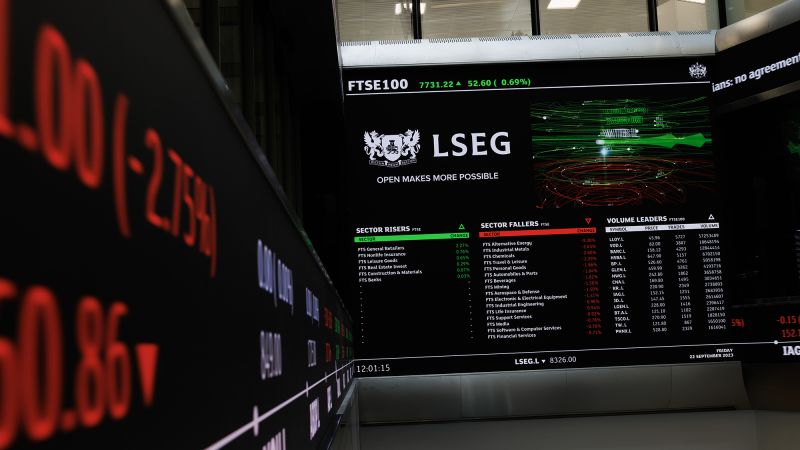In the latest financial news, London’s stock market has taken the lead over Paris amid concerns about the upcoming parliamentary elections in France. According to Bloomberg, all stocks listed in France are now valued at $3.13 trillion, slightly lower than the $3.18 trillion total for UK-listed shares. Despite this, the CAC All-Share index in Paris is still marginally larger than London’s FTSE equivalent.
The shift in market dominance is attributed to French President Emmanuel Macron’s decision to call for snap elections on June 9 after his party was defeated by the far right in the European Union lawmaker vote. Axel Rudolph, a senior market analyst at IG Group, stated that financial markets are wary of uncertainty, especially with the rise of far-right parties in France.
Following Macron’s announcement, the CAC 40 index of top French stocks saw a decline of over 5%, equivalent to $160 billion, as investors anticipate a stronger presence of the National Rally party in France’s parliament. The first round of the French elections is scheduled for June 30, with a second round on July 7.
Opinion polls indicate growing support for the National Rally, with 32% of respondents favoring the party in the first round. This surge in popularity has negatively impacted French banking stocks, with shares in Société Générale plummeting nearly 14%.
Investors are concerned that a parliament led by the far right could impose penalties on banks, as populist governments often target financial institutions. Additionally, the ownership of a significant portion of France’s public debt by banks has further contributed to the decline in stock prices.
On the UK front, markets remain stable as the country gears up for its own general election on July 4. Investors are showing interest in UK companies due to their low valuations compared to US stocks. Amidst Brexit uncertainties and economic improvements, the UK market is gaining favor among overseas investors.
In contrast, the National Rally in France has promised increased public spending and tax cuts if elected, raising concerns among credit ratings agencies. S&P recently downgraded France’s long-term credit score, projecting a higher budget deficit than targeted by the current government.
Overall, analysts warn of the debt and deficit challenges facing France, with doubts about meeting deficit reduction targets in the coming years. As the political landscape evolves, investors remain vigilant about the implications on the financial markets in Europe.












